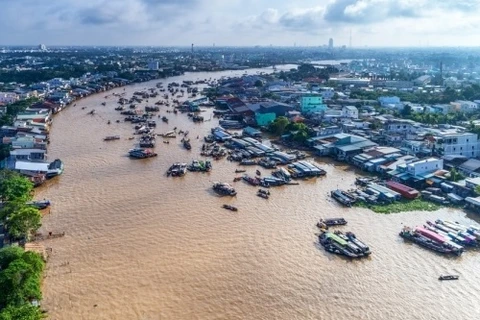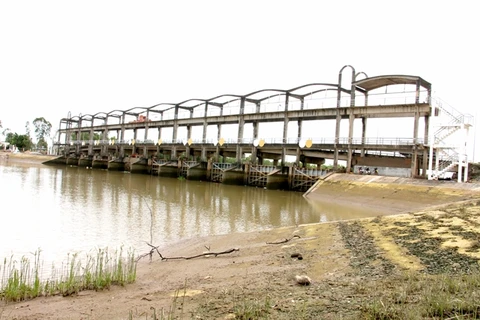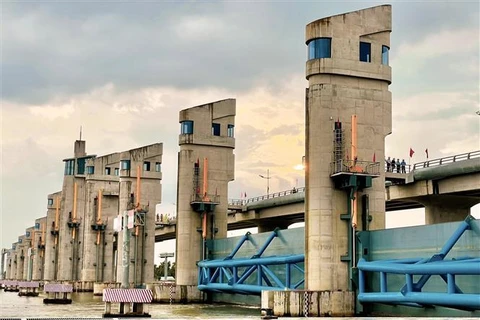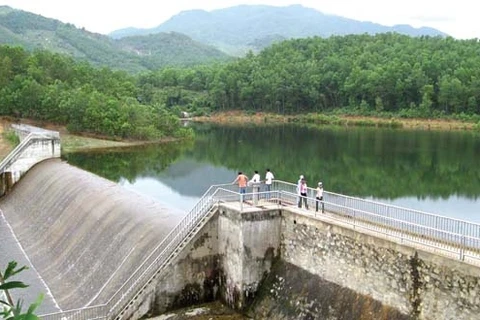Kon Tum (VNA) - Deputy Prime Minister Pham Binh Minh has signed a decision to give in-principle approval for a project worth 14 million USD to modernise irrigation in response to climate change in the Central Highlands province of Kon Tum.
The project using the Asian Development Bank's loan aims to enhance drought and climate change resilience; improve irrigation efficiency serving agricultural restructuring towards increasing added value and sustainably developing irrigation systems; better the efficiency of irrigation management service, new techniques and irrigation works.
It will focus on repairing and upgrading a number of irrigation works in the districts of Dak To, Ngoc Hoi, Dak Ha and Kon Ray, thus ensuring stable water supply for about 1.448 ha of crops.
In addition, effective water management measures will be implemented in the inner field in order to stabilise water sources serving the conversion of crops with high economic efficiency, and proactively prevent drought and adapt to climate change.
The project will also help local farmers access economical irrigation techniques; know more about irrigation cycles and levels, and methods to maintain in-field irrigation system; and build irrigation and crop cultivation plans.
The project will be implemented in four years, starting from June 2022.
According to statistics of the provincial Department of Irrigation, the locality has 595 irrigation works, including 85 reservoirs, eight pumping stations and 502 dams.
Kon Tum is home to nearly 125,000 ha of crops, in which over 8,800 ha of annual winter-spring crops and nearly 29,000 ha of coffee trees which are need water most at the peak of the dry season.
The project is hoped to increase the water supply capacity of irrigation works, reduce the risks of drought and climate change, especially in areas with large cultivation areas of coffee and other crops such as Dak Ha, Kon Ray, Dak To and Ngoc Hoi./.
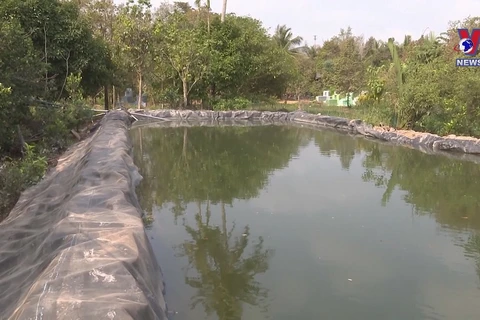
Ben Tre seeking ways to cope with drought, salinity
To cope with drought and saltwater intrusion, the southern province of Ben Tre has come up with a range of different solutions. The province has also encouraged local people to store rain and tap water for production and daily needs.

